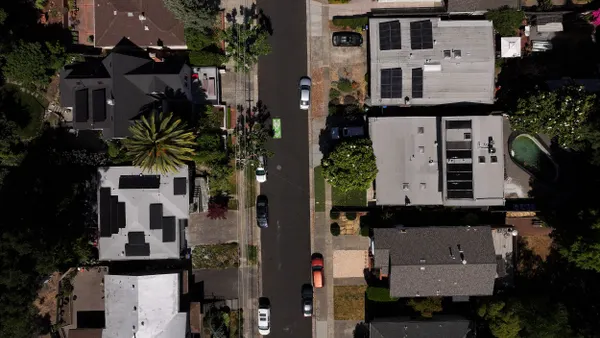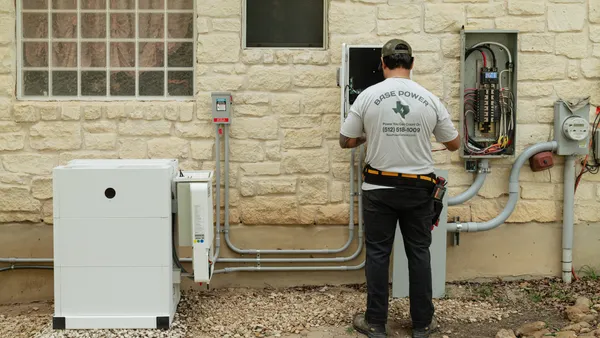Dive Brief:
- Cities' increased reliance on electric vehicles (EVs) and electric buses could overwhelm their electric grids and result in outages, warned a new report from the Rocky Mountain Institute (RMI) and Seattle City Light.
- While the report's analysis is primarily focused on Seattle, it offers lessons for other cities, including that grids must be upgraded if they are to rely more heavily on EVs. The report said utilities should partner with city agencies to support "aggressive electrification commitments" and to ensure they keep up with technological changes.
- The report also says cities can encourage greater EV use by putting chargers at designated drop-off areas for ride-hailing companies like Uber and Lyft; having fast chargers at apartment buildings and in underserved communities; and having community car-sharing programs. Partnerships between utilities and city agencies can help accelerate such initiatives and ensure that the grid can cope.
Dive Insight:
The report notes that Seattle has taken major steps toward electrification and has big goals it wants to achieve in the coming decades. The city is aiming for 30% EV adoption and a fossil fuel-free municipal fleet by 2030, while its King County Metro transit agency aims to fully electrify its 1,400-bus fleet by 2040.
It is a major component of the city's climate plan, which includes EV readiness requirements passed by the Seattle City Council and a proposal to tax heating oil providers to help them transition to electric heat.
But a lack of charging infrastructure is one of the major barriers to EV deployment, and installing new chargers after construction can be costly for car buyers and business owners. Atlanta and New York have also passed their own EV readiness requirements, while there is also research into other options, like installing street-side chargers into light poles or deploying remote trailers to charge cars, bikes and scooters.
If cities are to continue with their electrification efforts, the report emphasizes that partnerships between utilities and government agencies are crucial. It said that Seattle City Light "needs a clear vision" for how it can help the city hit its mobility and electrification goals. A strong partnership is also needed with the Seattle Department of Transportation’s Office of Sustainability and Environment.
As cities look to up their electrification rates, those partnerships are key. With Seattle being just one city that has set ambitious goals, the lessons are applicable to others across the U.S.














